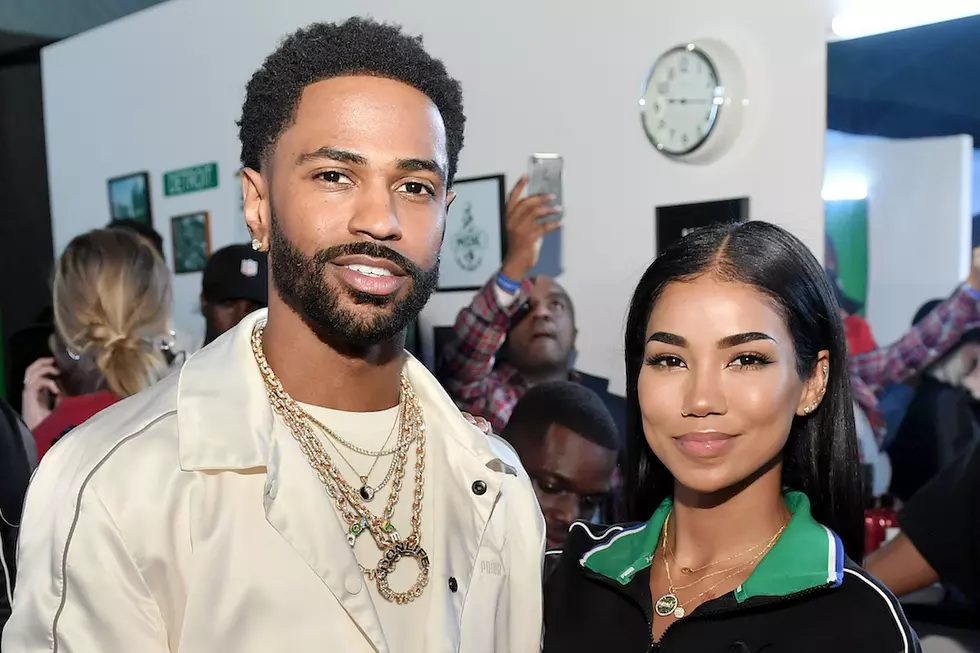
Jhené Aiko Is A Breath Of Fresh Air On ‘Souled Out’
Over the past decade, Jhené Aiko has met the ups and downs of the music industry, including label woes and critics, but since starting the recording process of her debut album Souled Out in 2011, the California songbird has seen nothing but highs - literally and figuratively. It was a meeting with Atrium Records' label head No I.D. that sparked a greater conversation and pushed Jhené to "sail out" rather than "sell out." Just shy of a year since the release of her November 2013 EP Sail Out, the Def Jam signee has finally released her highly anticipated debut, Souled Out.
Falling into the realms of alternative R&B, also known as R-Neg-B, Jhené Aiko has cultivated a sound that possesses soulful but vulnerable vocals carefully layered over heavily used synthesizers and wooly drum loops. As the genre itself is caught in a revolutionized limbo, not aware of where it may end up or where it'll go next, Jhené ironically opens Souled Out with the single, "Limbo Limbo Limbo." Speaking of life being a journey over the Dot Da Genius and Woodro Skillson space odyssey, Jhené gracefully transitions into the Thundercat and Clams Casino-produced “W.A.Y.S.” and outlines her inspirations; one of which being her late brother Miyagi, who inspired the single’s title “Why Aren’t You Smiling?” Relationships, dreams, and aspirations are concepts that layer the album, often intertwining with Souled Out’s silky psychedelic production.
No I.D. takes on the bulk of Souled Out's production channeling spaced out melodies and hypnotic synths to push Jhené's vocals forward. Re-imaging 50 Cent's "Many Men (Wish Death)" into "To Love & Die" alongside the rest of Cocaine 80s, No I.D. creates a dark melodic backdrop to accompany the hazy love confessional, while he feeds “Spotless Mind” with a gentle funk-infused beat and acoustic guitar that captures Jhené as a voyeur to life. Frequent collaborators Fisticuffs (Mac Robinson & Brian Warfield) maintain fluidity in production serving up “Lying King” and “The Pressure”, two singles that generate alluring synth production and vulnerable lyrical content.
As “Brave” calls out for "warriors" who can handle a relationship with the songbird, it’s “Promises” that lays closest to her heart. Jhené turns to Norwegian electronic duo Röyksopp to create the electric guitar-infused backdrop to features vocals from her late brother, and a soft hook from her daughter Namiko. Tugging on heartstrings throughout the album, Jhené closes out Souled Out with the humbling "Pretty Bird (Freestyle)," which features a Common overlay to the tune of “Pop’s Rap." Serving as the most dynamic single on the album, it could be said that “Pretty Bird” embodies the essence of Nina Simone's "Blackbird"; a song that reaches depths through its struggle and hurt. Although Jhené doesn't quite evoke the pain or anger that Simone’s vocals expressed, she does capture a sense of emotional freedom that graced the wings of that caged bird over half a century ago.
As fate would have it, or perhaps a very calculated move, “Pretty Bird” serves as reminder of the artist singing and the troubles she’s faced to get here. It represents a duality between freedom and fear, hazy and sultry, and subtle but straight forward – everything that Jhené has managed to curate over the course of the 12-track album. However, “Pretty Bird” also speaks to the artist that is still growing vocally and emotionally, and a person who’s moving through life with a heavy heart. While Jhené Aiko is not Nina Simone, she is a breath of fresh air in a musical sea that’s often changing tides and taking artists with it.—Erin Lowers
More From XXL









